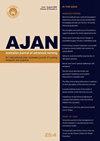新毕业的护士和助产士在进入卫生队伍三个月内的组织社会化
IF 1.3
4区 医学
Q3 NURSING
引用次数: 7
摘要
目的:调查当前的入职流程是否影响新毕业护士和助产士的组织社会化。背景:新毕业的护士和助产士在进入医疗保健环境期间,积极的组织社交经验是培养组织提高劳动力能力的重要因素。然而,很少有研究调查入职过程,以促进他们的组织社会化。研究设计和方法:在一个大型地方卫生区进行了定量、描述性、横断面研究设计,该卫生区为大都市、农村和偏远地区的近100万人提供卫生服务。参与者是170名新毕业的护士和助产士,他们于2017年1月和2月在该地区的21个急性和社区医疗机构开始了过渡计划。数据是通过对当前入职流程的文件审查和对应届毕业生的在线调查收集的。使用描述性统计和内容分析对数据集进行了分析。结果:调查有效率为47%(n=80)。调查结果强调,学区提供的入职流程对新毕业生过渡到工作场所很有用。调查结果还表明,该地区不同背景下的入职流程不一致,需要更相关、更实用的组成部分。此外,目前的入职培训并没有充分提供在工作环境中为应届毕业生建立关系的策略。讨论:这项研究为当前大都市和农村地区的入职实践提供了宝贵的见解,并强调了整个卫生区在这一过程中的差距。研究结果为解决定向课程结构和内容的不一致问题提供了见解和未来的改进方向。还确定了需要更容易获取和一致的组织信息,以及更结构化的全组织入职流程框架。结论:重新设计一个相关、一致并加强关系建设的入职流程,对于满足新毕业护士和助产士的专业和组织需求至关重要。对研究、政策和实践的影响:该研究的结果表明,有必要简化入职流程,为新毕业生提供更多机会,无论他们在哪里,都能发展和维持专业网络和相关的工作关系。它们还表明,需要制定政策、实践和未来的研究,以帮助更好的组织社会化,特别是在向临床工作场所过渡的过程中,更好地分配资源,更好地利用用于教育和工作场所支持的时间。关于这个话题已经知道了什么?在新毕业的护士和助产士的第一年为他们提供支持对他们过渡到劳动力市场和提高他们在该行业的保留率很重要。新毕业生在过渡到工作场所期间的入职流程增强了他们的专业知识和信心,从而提高了他们提供安全优质医疗保健的能力。很少有研究调查在进入卫生工作队伍的前三个月内,入职过程与促进组织社会化之间的关系。这篇论文增加了什么?调查结果表明,有必要改进入职流程,以更好地满足应届毕业生的复杂需求。实施量身定制的入职流程,特别是在农村和专业领域,可以改善组织的社会化。本文章由计算机程序翻译,如有差异,请以英文原文为准。
The organisational socialisation of new graduate nurses and midwives within three months of their entrance into the health workforce
Objective: To investigate if the current onboarding process influences the organisational socialisation of new graduate nurses and midwives into the workforce.
Background: Positive organisational socialisation experience for new graduate nurses and midwives during their entry into the healthcare environment is an important contributor when building an organisation’s ability to increase workforce capacity. However, few studies have investigated the onboarding processes to promote their organisational socialisation.
Study design and methods: A quantitative, descriptive, cross-sectional study design was conducted at a large Local Health District that provides health services to almost one million people in metropolitan, rural and remote locations. Participants were 170 new graduate nurses and midwives who commenced their transition program at 21 acute and community healthcare settings within the District in January and February 2017. Data was collected through a document review of current onboarding processes and by an online survey of new graduates. Data sets were analysed using descriptive statistics and content analysis.
Results: The survey response rate was 47% (n= 80). Findings highlight that the onboarding process provided by the District was useful for the new graduate’s transition into the workplace. The findings also indicated that the onboarding process was inconsistent across different contexts in the District and required more relevant and practical components. In addition, the current onboarding did not adequately provide strategies to build relationships for new graduates within their work environments.
Discussion: This study provides valuable insight into current onboarding practices in both metropolitan and rural contexts and highlights gaps in this process across the health District. The findings of the study provide insights and future direction for improvements with addressing the inconsistency in the structure and content of orientation programs. The need for more accessible and consistent organisational information and a more structured framework for the organisational wide onboarding process was also identified.
Conclusion: Re-design of an onboarding process that is relevant, consistent and enhances relationship-building is imperative to meeting both the professional and organisational needs of new graduate nurses and midwives.
Implications for research, policy and practice: The findings of the study imply a need to streamline the onboarding process to provide greater opportunity for new graduates to develop and sustain professional networks and associated workplace relationships regardless of their locations. They also signal a need to develop policies practice and future research to assist a better organisational socialisation, in particular, the allocation of resources, better utilisation of time spent on education and workplace support in the transition into their clinical workplaces.
What is already known about the topic?
Supporting new graduate nurses and midwives in their first year is important for their transition into the workforce and to increase their retention in the profession.
Onboarding processes for new graduates during their transition into the workplace enhances their professional knowledge and confidence, which increases their capacity to provide safe quality healthcare.
Few studies have investigated the relationship between the onboarding process and the promotion of organisational socialisation within the first three months of entering the health workforce.
What this paper adds?
Findings identify the need to improve the onboarding process to better meet the complex needs of the new graduates.
Implementation of a tailored onboarding process, especially in rural and specialty areas improves organisational socialisation.
求助全文
通过发布文献求助,成功后即可免费获取论文全文。
去求助
来源期刊
CiteScore
2.30
自引率
7.10%
发文量
27
审稿时长
>12 weeks
期刊介绍:
The Australian Journal of Advanced Nursing publishes a wide variety of original research, review articles, practice guidelines, and commentary relevant to nursing and midwifery practice, health- maternity- and aged- care delivery, public health, healthcare policy and funding, nursing and midwifery education, regulation, management, economics, ethics, and research methodology. Further, the journal publishes personal narratives that convey the art and spirit of nursing and midwifery.
As the official peer-reviewed journal of the ANMF, AJAN is dedicated to publishing and showcasing scholarly material of principal relevance to national nursing and midwifery professional, clinical, research, education, management, and policy audiences. Beyond AJAN’s primarily national focus, manuscripts with regional and international scope are also welcome where their contribution to knowledge and debate on key issues for nursing, midwifery, and healthcare more broadly are significant.

 求助内容:
求助内容: 应助结果提醒方式:
应助结果提醒方式:


